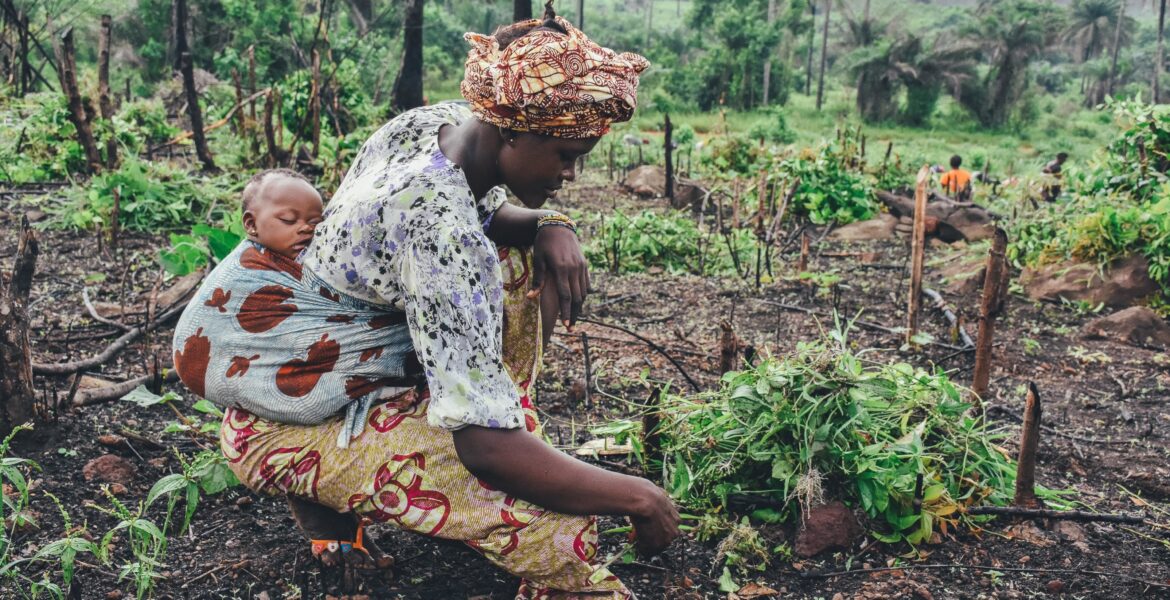As in the case with any global crisis, the people most affected by climate change are women and children – especially girls – whose plight is much worse if they are in marginalised communities. This reality is calling for attention at COP27 that will be held in the land of biblical scarcities and brutal famines caused by climate change, Egypt, next month
ANURIT KANTI
Global Shaper, Gurugram Hub, World Economic Forum
By 2030, climate change is expected to push an additional 132 million people into extreme poverty — many of them women, girls and marginalised communities.
Without a focus on climate justice, this year’s COP27 is in danger of failing to protect and amplify the voices of the primary victims of climate change. But climate justice isn’t just the right thing to do, it is also the most effective measure for building wider societal resilience and achieving the UN’s Sustainable Development Goals.
This year’s Conference of the Parties (COP), which will be held in the Egyptian resort town of Sharm el-Sheikh, will be pivotal. In Glasgow last year, countries committed to more climate financing and raised their goals but fell short of the required national commitments to limit warming globally to 1.5⁰ C.
COP27 is an opportunity to remedy that problem and also to ensure that the issue of climate justice is tackled effectively. The point is that without climate justice, more funding and loftier promises by world leaders will be meaningless.
With the Glasgow conference deemed a moderate success because some countries committed more to climate finance and raised their goals, the conference in Egypt has a unique opportunity to take the much-needed leap towards effective climate action.
The COVID-19 pandemic pushed 150 million people into extreme poverty. By 2030, climate change is expected to push an additional 132 million into extreme poverty. As in the case with any global crisis, the people most affected by climate change will be women and children, especially girls, and this will be exacerbated if they are from marginalised communities. They are more likely to be exposed to poverty, loss of livelihood and malnutrition.
It is imperative, therefore, that the pursuit of sustainable development, effective climate action and an inclusive future embodied by the annual COP meetings, keeps climate justice for women, children and those from marginalised communities at the heart of its discussions.
How COP27 can help African nations bearing the brunt of climate change
Equality, justice, and investment in nature must be at the heart of the corporate climate response. COP27 is a unique opportunity for emerging markets to shape global climate action. We must seize it.
Three steps for climate justice
Climate justice is not just the right thing to do. Empowering marginalised people and communities and improving their resilience will improve overall climate resilience and bolster all climate action. Substantial evidence points to the fact that not only do women make more effective climate leaders but also that achieving the UN SDG 5 on Gender Equality can in fact be an accelerator to the achievement of the other 16 SDGs. The Forum’s Global Shapers Gurugram Hub has examined these interlinkages. There are three ways COP delegates can ensure they are addressing climate justice.
1. Climate finance.
Women, children and particularly girls, as well as people in marginalised communities need to become primary beneficiaries of climate financing. This is particularly important for the Global South which may not be able to contribute as much as developed countries towards climate finance.
The tenets of climate justice dictate that historically high-emitting developed nations should bear the major brunt of climate financing to build climate resiliency for those most likely to be affected in developing nations. Cumulative emissions should be considered, not only current emission rates.
2. Adequate representation.
Women and marginalised communities must be adequately represented in decision-making during COP27. COP26 was infamous for being heavily skewed towards male representation. This effectively reduced the agency of women and marginalised communities, preventing them from advocating for their own rights and needs, and for telling delegates how best they can improve their own resilience.
3. People-centric investment.
Programmes focused on increasing climate resiliency for those at the receiving end of climate injustice must be the primary target of climate finance, rather than large corporations. This is because 90% of climate finance has historically been used for mitigation, going to large corporates who already have avenues for getting funds, while the amount spent on ensuring climate justice and resiliency is negligible by comparison.
COP27 should address the flows of climate finance to ensure they prioritise climate justice.
People at the heart of the fight against climate change
COP27 and its delegates must not only acknowledge that issues of people and society like gender inequality, poverty and health are not peripheral issues of sustainability but are the human face of the climate crisis. Environmental issues like natural resource management, biodiversity and other planet-related elements in the discussions of COP27 are critical, but without society, equity and climate justice, the overarching objective of the conference will be lost. It will become a mere excuse for world leaders to put their own agendas at the forefront.
Effectively addressing the critical issue of climate justice at COP27 is of the utmost importance. Failure to do so could plunge the world’s most vulnerable people further into the economic and social despair caused by the pandemic in danger of being exacerbated by climate change. What this means is that at this year’s COP, the world must step in and make sure that any efforts to counter climate change do not forget those most affected by it.

